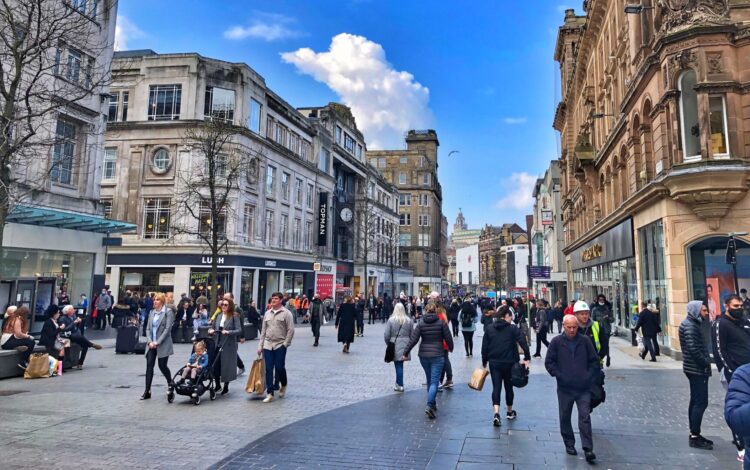Chief executive of Liverpool BID Company, Bill Addy, says a proposal to make it easier to convert commercial properties to residential threatens the ‘character and culture’ of high streets. Tony McDonough reports

High streets in Liverpool and across the UK are under threat from a proposed change to planning law that will make it easier to convert retail buildings into residential schemes.
That’s according to Bill Addy, chief executive of Liverpool BID Company and a Senior Fellow Institute of Place Management. He warns the proposals could damage the “character and culture” of high streets if local communities aren’t consulted.
The Government is currently in consultation over changes to Permitted Development Rights. The proposed changes to planning laws mean full planning applications will not be needed to renovate unused buildings as residential or for any other use (outside of conservation zones).
But Mr Addy, who represents 1,500 Liverpool city centre businesses via the BID, says, that without property scrutiny, turning empty units into housing risks communities having no control over the resilience and future of their neighbourhoods.
Mixed economies mean thriving local communities, he said, with a mixture of housing, local businesses, places to eat, shop and relax. In Liverpool, mini high streets are anchor points for local communities.
READ MORE: Liverpool BID to extend footprint and invest £7m
Mr Addy claims the proposals would put areas such as Smithdown Road, Aigburth Road, high streets in north Liverpool and Church Street in the city centre at risk as they are not in conservation areas. He warns of the risk to the ’15-minute city’ concept where everything you need within a few minutes of your front door.
He explained: “There has never been a greater opportunity to create the cities we need, but the changes to Permitted Development Rights, currently in consultation stage, will hinder the ability of high streets to evolve and adapt.
“The proposed changes to planning laws mean that full planning applications will not be needed to renovate unused buildings as residential or any other use for areas outside conservation zones.
“While there is a need to give empty units a new lease of life, without engaging with the local community – and that includes businesses as well as residents – we risk creating a two tier high street, where people feel they have no say, no control.
“Developers could completely transform the character of a high street without a single individual being able to stop them.”
During the COVID-19 lockdowns the power of the high street to meet people’s needs was thrown into sharp focus, Mr Addy said. He added: “Turning embattled high streets over to residential risks upsetting the balance of these communities, damaging the ability to serve what the neighbourhood needs.

“Cities always adapt and evolve. A century and a half ago, Church Street was residential, before it became one of the most fashionable and forward thinking retail experiences in Europe, with department stores and fresh ideas straight from Paris and New York to wow shoppers.
“It has continued to adapt, and while it has been a BID area, we have seen the retail heart of Liverpool develop into a mixed use economy, with space for shoppers, restaurants, cafes, coffee shops and more. What works in a BID is that businesses have a say in how a street or an area evolves and changes.
“They are able to say how a new development might improve, or negatively impact them. They feel invested, and having a say in your high street is vital if we are to bring communities together.
“Yet these planning rules remove a voice. There’s a lack of protection for cultural venues. What if an empty unit is next to a bar, or music venue, that manages to reopen after this pandemic but then faces a new threat of a residential block that impacts their ability to stay open.
“We cannot risk our city centres, that are currently at the heart of a shared conversation about how they need to meet our new needs post-pandemic, being changed irrevocably without anyone having a say.”

